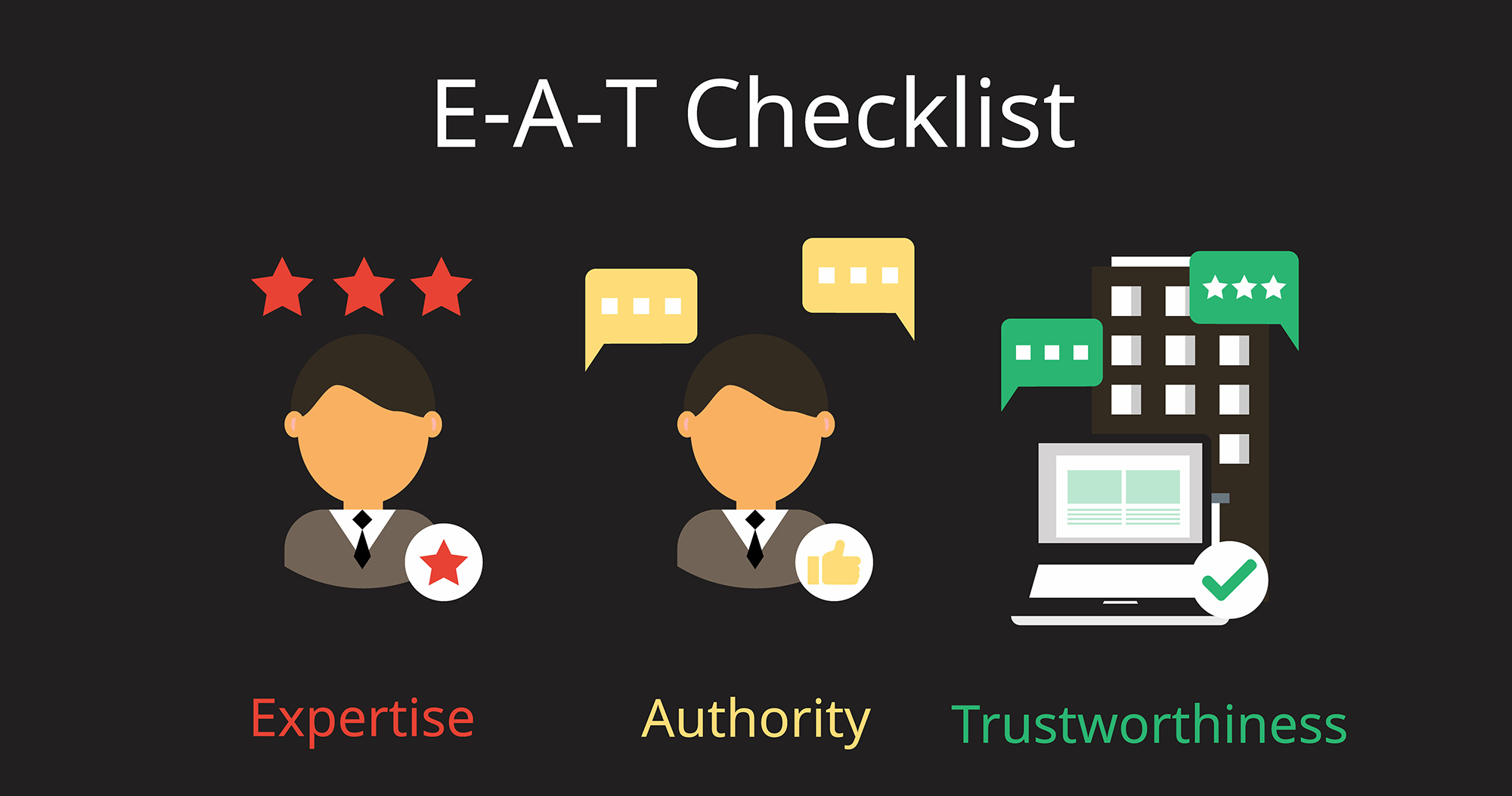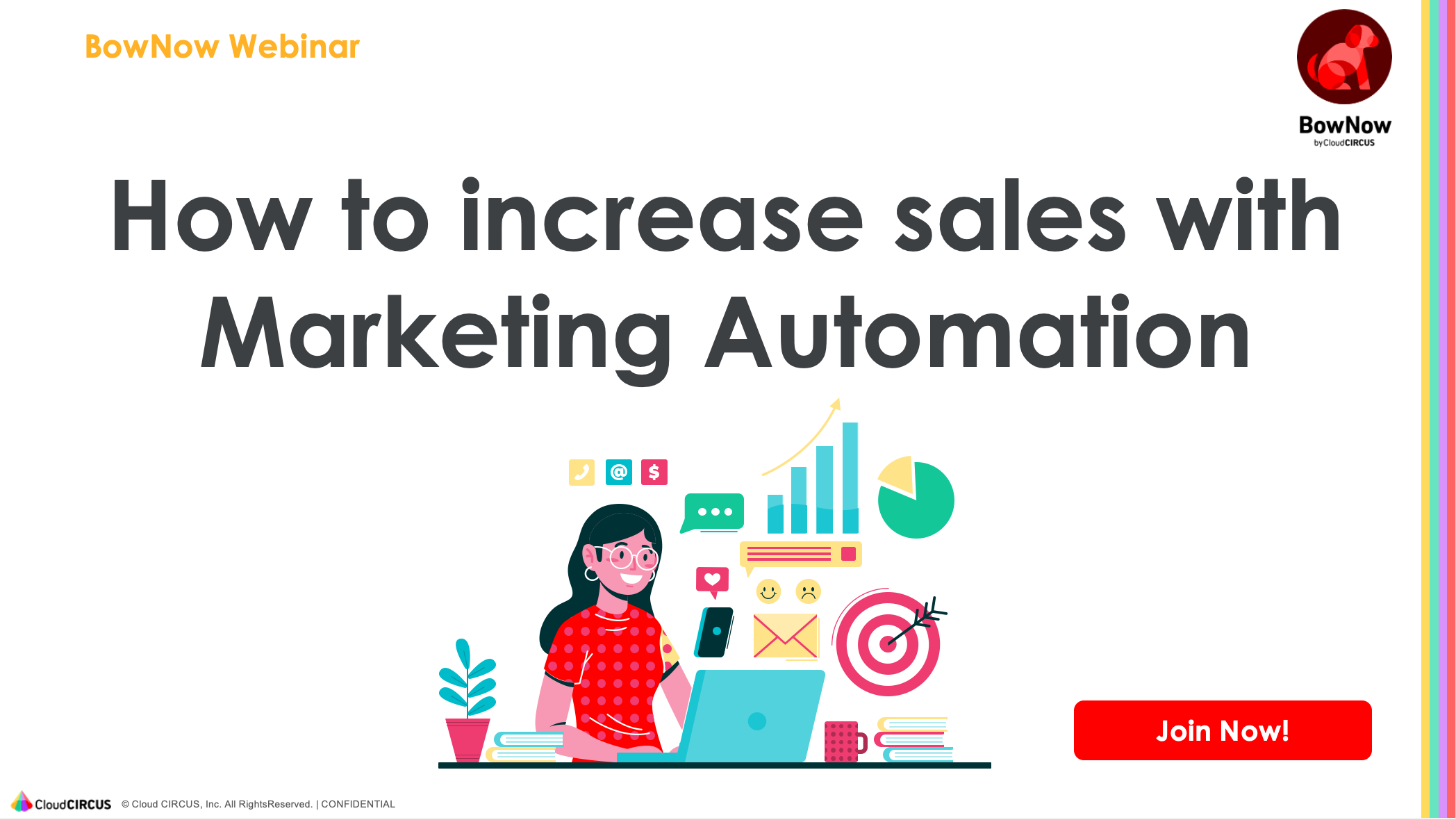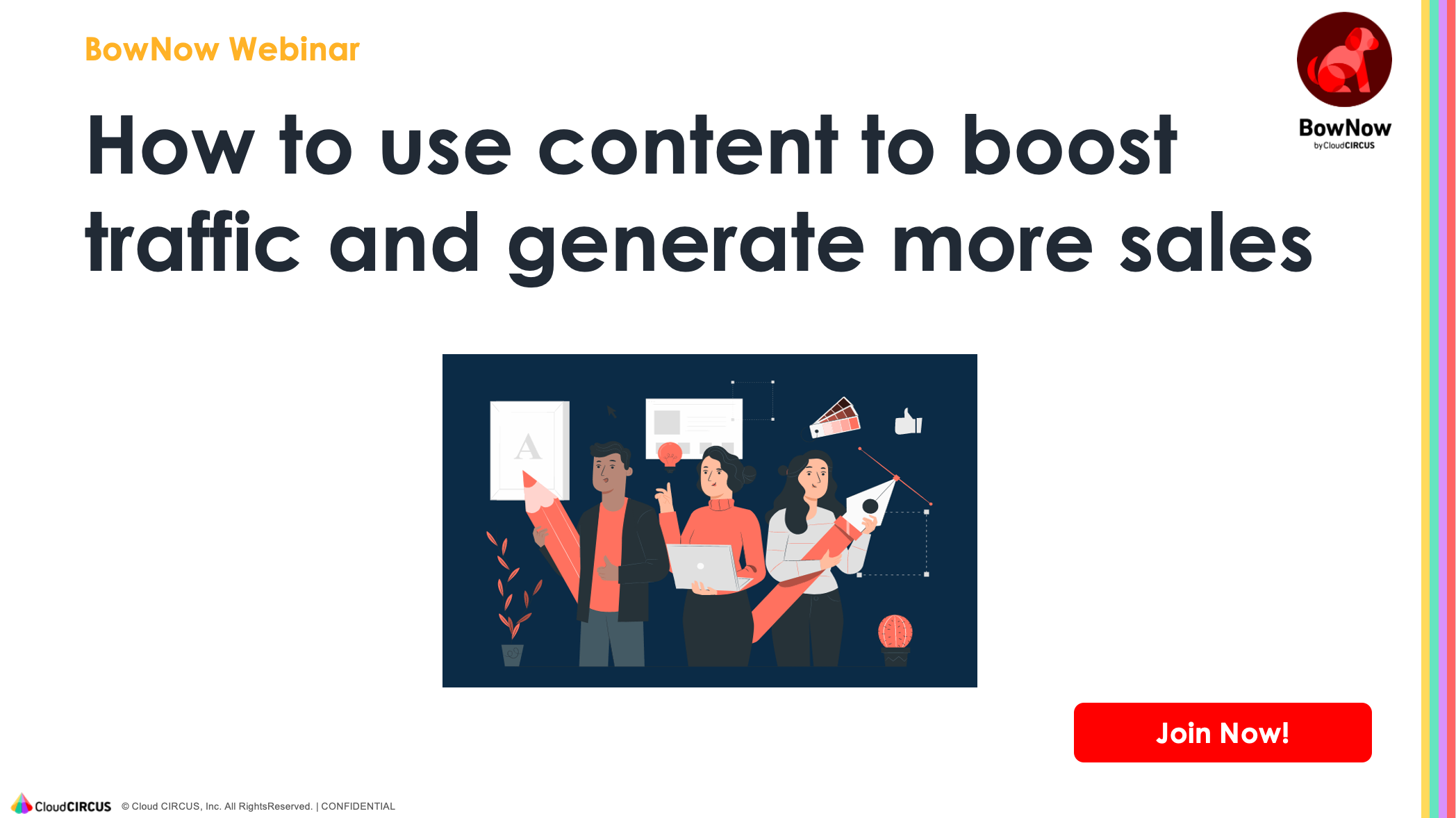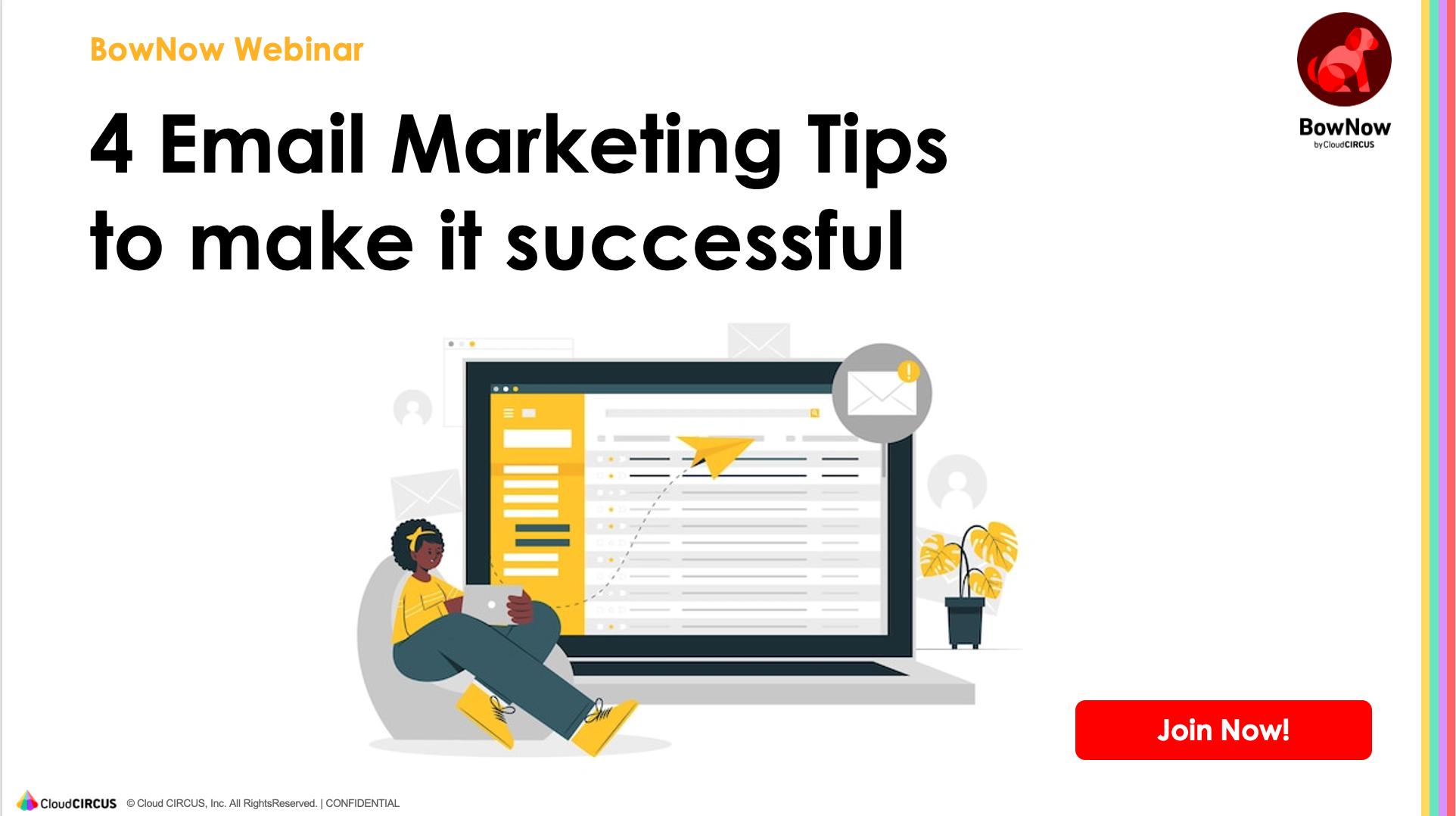What is E-A-T and Why is it Important for SEO?

E-A-T is an acronym that stands for “Expertise, Authority, and Trustworthiness,” and originally comes from Google’s Search Quality Rater guidelines. The E-A-T concept has actually been around since 2014, and has gradually become one of the biggest factors affecting SERP rankings. Read on to learn actionable tips to increase your E-A-T score and attract more traffic to your website.
Table of Contents
5 How are E-A-T and YMYL related?
6 How to improve SEO rankings with E-A-T
- ・Build your website around one central subject area
- ・Conduct and share interviews with experts
- ・Clarify the author’s name and organization
- ・Get quality backlinks
- ・Include the web page’s date of publication or update
- ・Quote and reference reliable organizations
- ・Register for Google “My Business” and manage reviews
- ・Make sure to have SSL security set up
What is E-A-T?
E-A-T is one of the Search Quality Rater guidelines determined by Google. The E-A-T factor in SEO shows how Google favors websites that are specialized, authoritative on a subject, and a reliable source of information. In addition to E-A-T, there are various other evaluation criteria in Google’s guidelines such as YMYL (“your money or your life”) and Needs Met, but E-A-T is said to have particular importance in search rankings.
Let’s take a closer look at what Google means by Expertise, Authority, and Trustworthiness.
Expertise
Expertise in E-A-T refers to when a website specializes in a certain subject or niche.
For example, sites that center their web pages around one theme, such as medical media, pet media, and cosmetics sites, are evaluated as highly specialized. Among them, specialized sites that only post information on dogs and only information on cats are determined as more specialized, and evaluated even higher.
Take note that even if you publish a highly specialized and well-written article, it will not be evaluated on its own. The “expertise” factor is determined by a sum analysis of all your web pages. For example, if you have 200 blog articles on Final Fantasy 7 strategies, then Google will assess you to be an expert on this specific game.
Authoritativeness
When a website clearly states who or what organization it is run by, and all blog articles include their authors and what credentials they have to be discussing this subject, the site will be rated as more authoritative. Also, Google evaluates authoritativeness higher when external websites have linked to this site multiple times over the past few years and have deemed this site as the thought leader to follow in this specific industry.
Google cannot determine whether the information in your blogs or web pages is correct or not. For this reason, Google double checks who the writer is and gives a better ranking to the writers with a professional background in the subject area, in order to avoid false information appearing at the top of SERPs.
Trustworthiness
As you might guess, trustworthiness is judged by the reliability of a website and its information. For example, official government websites, major corporations’ websites, or websites of medical facilities are considered highly reliable.
To go into more detail, customer reviews can contribute to a high rating, but the effect varies depending on whether the reviewer posts it themself or not, and whether this is an anonymous review or they include their real name. Further, when blog writers link to their social media accounts, it can add to the overall trustworthiness.
How are E-A-T and YMYL related?
YMYL is a term you will inevitably come across when looking up SEO strategy. This is another acronym, which means “your money, your life,” and points to any web page that can have an impact on the viewer’s current or future well-being (physical, financial, safety, etc.).
With that said, you may think that YMYL is irrelevant to your corporate website. Because what web pages on there could really affect a person’s livelihood? However, what Google considers YMYL content is actually quite extensive, for example:
- ecommerce platforms, or any site that solicits a purchase
- advice on high-stakes decisions, like having kids or investing in a house or car
- advice on legal or financial matters
So, what do E-A-T and YMYL have to do with each other? Because Google takes YMYL content very seriously, there are much higher evaluation standards for E-A-T compared to non-YMYL subjects. This is because certain information can have detrimental effects on a person’s life if it is inaccurate, like if a medical site suggests you smoke cigarettes to cure asthma.
How to improve SEO rankings with E-A-T
1.Build your website around one central subject area.
To be recognized as an expert in your field, choose a theme to focus all your content around. The more specific the better. For example, if you own a Human Resources firm, your website can include blogs like “How Manage Employees Working From Home” “Tips for HR Professionals to Conduct Job Interviews Remotely,” and “Guide to Integrating an HRM Tool In Your Business.”

2.Conduct and share interviews with experts.
Reach out to industry leaders and influencers to participate in an interview for your corporate blog. Then make sure to include the qualifications of this person, such as their academic background and position at work.
3.Clarify the author’s name and organization.
Even if the blog writer doesn’t have a PhD in the subject area, you should at least include their name and company to make it more transparent where this information is coming from. On top of that, adding the writer’s website and SNS links can have a positive effect on the E-A-T score.
4.Get quality backlinks.
Though this one is obvious, backlinks are a major deciding factor in whether your SEO ranking grows or not. Though this may be hard when you’re just getting started with your website and you’re still in the phase of building brand awareness, I suggest you eventually reach out to blogs with a higher following and request a reference to your website.
The key in asking for a backlink is to make it beneficial to the person you’re asking as well. For example, if there is a broken link on one of their blogs and you have the perfect piece of content to replace it, you could email their company and suggest they make that update. Or else if one of their blogs is citing outdated data, you could provide them with newer information with your own research findings.
Anyways, make sure to make a request strategically, to increase your chance of getting noticed by the owner of that major blog you want to be referenced on.
5.Include the web page’s date of publication or update.
Make sure to clearly list the publishing date or the date in which a blog was updated. Side note: Google is able to tell if you regularly refresh your aging blogs, with newer research or data, for example. If you make the necessary updates and include the dates, Google will assess your site as well-maintained and a reliable resource.
6.Quote and reference reliable organizations.
The same goes for the opposite statement: don’t link to some random teenager’s blog- make sure your sources are all credible sites. This could be government websites, corporate sites, or really any major organization’s official website. And don’t forget to be transparent and give credit to the original writer or creator when quoting an outside source or linking to their work!
7.Register for Google “My Business” and manage reviews.
It is believed that reviews of your company on Google “My Business” can affect your ranking. Make sure to register and reply to all reviews.
8.Make sure to have SSL security set up.
Installing security measures such as SSL will protect both user information and websites. Google specifically recommends SSL, and not using SSL could lower your site’s ranking.
Common Misconceptions with E-A-T
E-A-T is not a direct factor in SERPs rankings.
A number of factors, such as page loading speed, h-tags, and keywords are evidently linked to improving your ranking. However, E-A-T is a slightly different concept and does not directly affect SEO rankings.
Danny Sullivan, an expert on SEO and launched the site Search Engine Watch, tweeted the following in October 2019.
“Is E-A-T a ranking factor? Not if you mean there's some technical thing like with speed that we can measure directly.
We do use a variety of signals as a proxy to tell if content seems to match E-A-T as humans would assess it.
In that regard, yeah, it's a ranking factor.”
You cannot expect immediate results from E-A-T.
It is true that simple improvements to your web pages, like adding tags or editing and adding more in-depth information can work wonders for SEO, and you can observe their effects very early-on. On the other hand, with E-A-T, Google evaluates your site based on a multiple-year period and your SEO over time. This means that even if you follow our tips to improve SEO with E-A-T, you shouldn’t expect to see any big changes right away. Further, if even one component of E-A-T is not met, whether it be Expertise, Authoritativeness or Trustworthiness, then there will be no significant improvements in SEO.
E-A-T is not an algorithm on its own.
At most, E-A-T picks up on signals on websites to better refine the Google algorithm for the user’s benefit. E-A-T is essentially a conceptualization of major factors that can indicate a quality, reliable website.
To Wrap Up
E-A-T is an important factor to improve the search ranking, but simple measures such as optimizing tags are not enough. To use E-A-T to improve SEO, you have to commit to a long-term plan and gradually build up a stock of high-quality content.
Want to learn more about SEO and improve your rankings?
Check out our guide to SEO terminology here.
Learn the difference between on-site SEO and off-site SEO.
Make sure to follow our main social media to receive digital marketing expertise daily.


.jpg)
.jpg)
.jpg)


